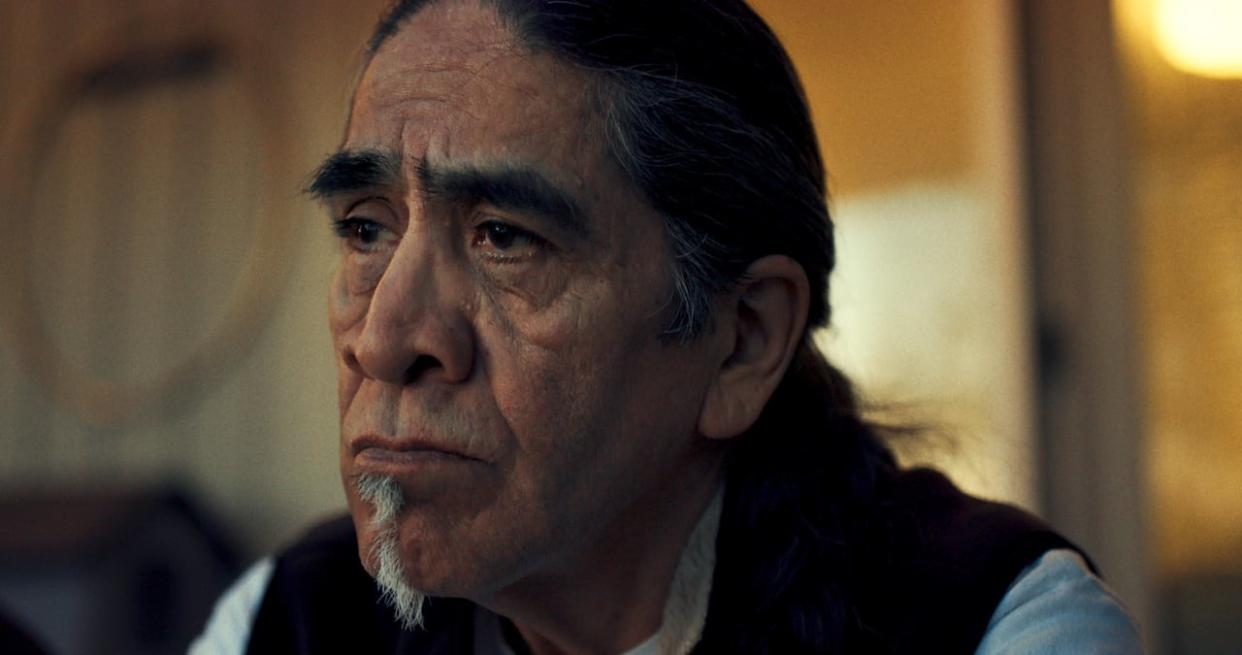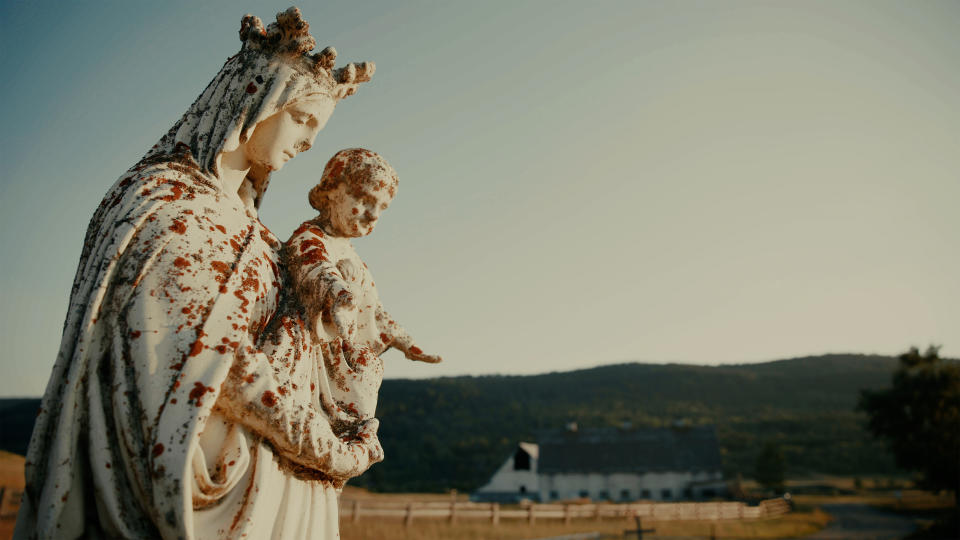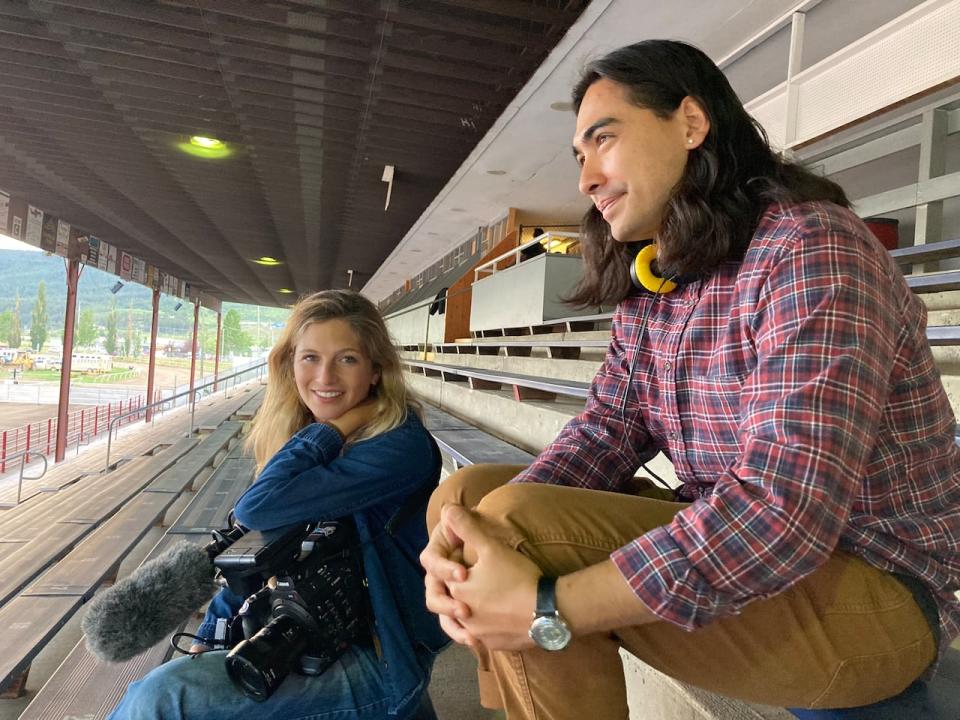Documentary on the legacy of residential schools in B.C. wins at Sundance Film Festival

- Oops!Something went wrong.Please try again later.
- Oops!Something went wrong.Please try again later.
A documentary chronicling the devastating legacy of residential schools in B.C. is among breakout films at this year's Sundance Film Festival.
Directors Julian Brave NoiseCat and Emily Kassie received the jury prize for directing in the U.S. documentary category for Sugarcane about the investigation into the abuse and missing children of a residential school, and its impacts on the nearby Sugarcane reserve.
Awards for the festival's 40th edition — which runs Jan. 18-28 — were announced Friday at the Ray Theatre in Park City, Utah.
"The reception here has just been incredibly positive," NoiseCat told CBC News from Park City, over Zoom.
NoiseCat, a member of the Canim Lake Band Tsq̓éscen̓, appears in the film alongside his father.
Ed Archie NoiseCat was forced to attend St. Joseph's Mission Residential School near the Sugarcane reserve in Williams Lake, located in B.C.'s central Interior roughly 326 kilometres northeast of Vancouver. He attended Sugarcane's screening along with other members of the Canim Lake Band Tsq̓éscen.
"I did not think I would be there in the documentary. I was initially only supposed to be behind the camera," said the younger NoiseCat.
"But as I continued to learn of my father's origin, I felt I wouldn't be giving my all if I did not appear."
The residential school near the Sugarcane reserve operated from 1886 to 1981 and was run by Roman Catholic missionaries.
The structure has since been torn down, but the painful memories for survivors and their families remain, says NoiseCat.

A still from the documentary Sugarcane by Julian Brave NoiseCat and Emily Kassie. The film won the directing award in the U.S. documentary category at the 2024 Sundance Film Festival. (Julian Brave NoiseCat and Emily Kassie)
"Since my family had a very deep and painful connection to the residential schools, I was hesitant to work on the subject matter," he said.
The involvement of fellow director Emily Kassie, however, helped move the needle on bringing the documentary to life.
"I was shocked and felt gut-pulled when I first heard about unmarked graves at the residential schools," said Kassie.
More than 150,000 children were forced to attend residential schools in Canada from the 1830s until 1997. The institutions were created by the Canadian federal government to assimilate Indigenous people, in part by forcibly separating children from their parents.
"I was in my first year of kindergarten when the final residential school closed in 1997," said Kassie. "I knew it was a story that needed to be told."
The Toronto-born journalist had already began her investigation when she came across a news article about the Williams Lake First Nation's investigation into the missing children at the school.
"I reached out to the First Nation and then I called Julian to tell him about the school," she said.
The two filmmakers had previously worked together while reporting for the Huffington Post.
"Out of 139 schools across Canada, she happened to come across the one school that my family attended," said NoiseCat.
Funny moments, painful moments
Despite the heavy subject matter, Kassie says Sugarcane also has its share of uplifting moments and comedy.
"There are both funny moments and there are painful moments," she said.
NoiseCat agrees.
"It's a road trip film. You could say it's also a buddy stoner film, it's not just a litany of of abuse and genocide," he said.

Julian Brave NoiseCat and Emily Kassie had previously collaborated while reporting for the Huffington Post. (Submitted by Julian Brave NoiseCat and Emily Kassie)
Williams Lake First Nation Chief Willie Sellars also attended the Sundance screening.
In an interview with CBC's The Early Edition, Sellars said "it was tough to hold it together while watching the film."
"We could see the impact the film made on the audience and it was really emotional to see all that," he said.
Sellars says he is confident the film will spark conversations about the legacy of intergenerational trauma left behind by residential schools in the Unites States.
"There were twice as many Indian schools in the U.S. than here. Hopefully, [Sugarcane] kickstarts a movement of healing and education throughout North America."

